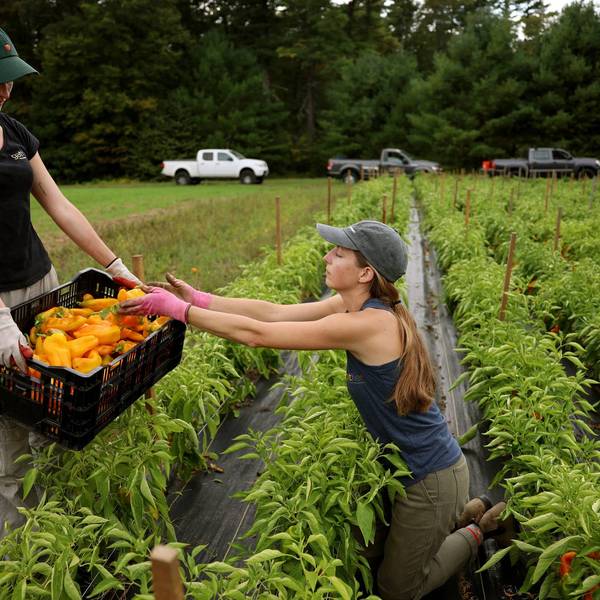While President Obama's new budget proposal has drawn widespread criticism for its cuts to Medicare and Social Security, another lesser known provision within the austerity heavy plan has caused great alarm from food safety advocates--a cutback on food inspection, most notably in the meat and poultry industries.
In Obama's budget, far less money would be allocated for federal food safety regulators, leaving room for a scheme promoted by Obama earlier this year in which industry employees are assigned to regulate themselves.
"The Obama Administration's proposed cuts to the FY 2014 budget for USDA's Food Safety and Inspection Service (FSIS) pave the way for an ill-conceived proposal to remove government inspectors from slaughter facilities and turn over their responsibilities to company-paid employees," Wenonah Hauter, executive director of Food & Water Watch stated Thursday.
An ongoing pilot version of this self-regulation method has been conducted at 20 chicken and 5 turkey slaughter facilities since 1999 and have performed poorly, Food and Water Watch has shown:
Food & Water Watch did its own analysis of the inspection documents from a group of the poultry plants participating in the pilot and we found that 'quality defects,' including visible fecal contamination, were being missed by company employees.
Even the USDA's own analysis of the program revealed that Salmonella rates in the plants using the privatized model were higher in pilot plants than in comparably-sized plants receiving conventional inspection.
Obama has already proposed to expand this program. This week's proposed cuts to the USDA will promote the institutionalization of this failing pilot program.
Speaking to the Real News Network on Thursday, Tony Corbo, senior lobbyist for the food campaign at Food and Water Watch, said:
...having USDA inspectors in these plants provides an unbiased view of what is going on in those plants from a food safety standpoint, from a sanitation standpoint. And so what the administration is proposing is to turn over a major proportion of the inspection duties over to the companies, where the company employees will be doing the jobs of the USDA inspectors. [...]
When the administration proposed their regulation, they had a report doing an evaluation of these pilot plants. And it showed the last two years of data that they collected, that the pilot plants had actually higher salmonella rates than the conventionally inspected plants. And lo and behold, just this past month--USDA does a monthly report on the testing that the government does in these plants to test to see if the salmonella rates are either high or low, and two of the pilot plants showed up as failing the salmonella test.
So here's the ultimate irony. The administration keeps on going around and saying that this new model, this new inspection model is going to be able to reduce salmonella, and yet all of the evidence points the other way.
Watch Corbo below:
_________________________



